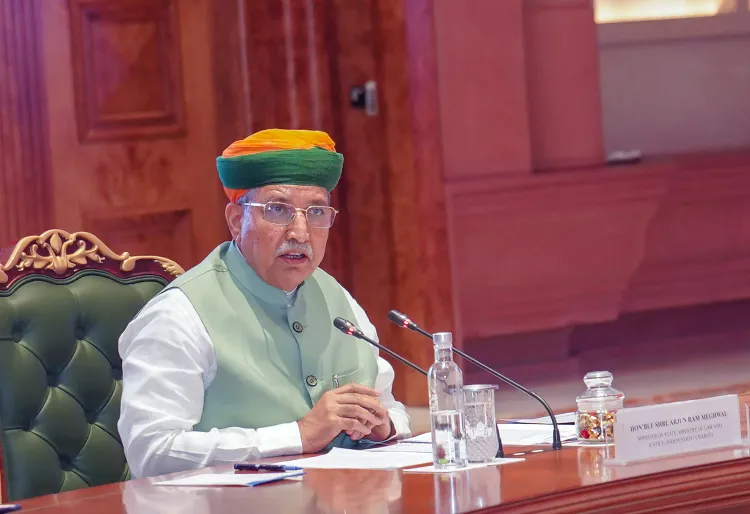Is India Truly Committed to Becoming a Global Arbitration Hub?

Synopsis
Key Takeaways
- Government's Commitment: Focus on making India a global arbitration hub.
- Institutional Framework: Emphasis on structured arbitration processes over ad hoc methods.
- International Competitiveness: Promotion of IIAC as a competitive global arbitral institution.
- Capacity Building: Need for training and resources in arbitration practices.
- Global Insights: Learning from international arbitration practices to enhance local frameworks.
New Delhi, June 15 (NationPress) Drawing upon India’s rich heritage of amicable dispute resolution, Union Minister of State (Independent Charge) for Law and Justice and Parliamentary Affairs Arjun Ram Meghwal announced the government's dedication to positioning India as a prominent global arbitration hub, as stated by an official on Sunday.
While speaking at a National Conference on Institutional Arbitration, which was organized by the Department of Legal Affairs in collaboration with ONGC and the India International Arbitration Centre (IIAC) on Saturday, the Minister emphasized that efforts are underway to establish institutional arbitration as the favored method for resolving commercial disputes.
He further mentioned that the government is keen on promoting the IIAC as a competitive arbitral entity on the world stage.
This full-day Conference gathered senior officials from the Ministry of Law and Justice, representatives from Central Public Sector Enterprises (CPSEs), legal specialists, and arbitration practitioners.
The event included four technical sessions that explored crucial elements of institutional arbitration. It attracted over 150 distinguished delegates and saw robust virtual participation with more than 1,600 views on social media platforms.
The first session, 'Enhancing Dispute Resolution in PSUs: The Role of Institutional Arbitration', addressed the unique challenges faced by public sector units and the transformative potential of institutional arbitration in the realm of infrastructure and public sector contracts.
Speakers highlighted the necessity for capacity-building and advocated for structured, institutional frameworks over fragmented and ad hoc processes, with backing from entities like IIAC.
The second session examined the IIAC (Conduct of Arbitration) Regulations, 2023, elucidating key provisions and their practical implications.
A brief video presentation showcased IIAC’s cutting-edge infrastructure, signaling India’s preparedness for managing complex and high-stakes arbitrations.
The third session, 'Best Practices During Arbitral Process — A Discourse', emphasized procedural and institutional best practices to optimize arbitration efficacy. Speakers suggested that structured case management, under institutional rules, would enhance clarity, reduce timelines, and diminish uncertainties in the arbitral process.
The fourth session focused on insights from global jurisdictions and future directions for India’s arbitration landscape. Discussions included international practices, emergency arbitration, and access to legal research tools to enhance arbitration accessibility.
The inaugural session commenced with a welcome address by Justice Hemant Gupta (Retd.), Chairperson of IIAC, who outlined the primary obstacles impeding the growth of institutional arbitration in India, particularly the persistent reliance on ad hoc methods.
He underscored the transition from the former International Centre for Alternative Dispute Resolution (ICADR) to IIAC as a pivotal initiative by the Government and stressed the importance for Public Sector Undertakings (PSUs) to embrace structured institutional frameworks.





